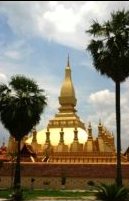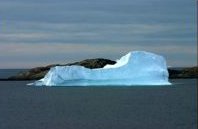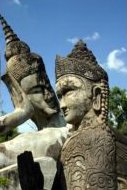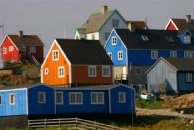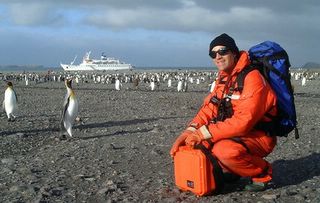1. Please tell us a little bit about your personal and educational background.
I am married and have a little daughter of 22 months. It’s been a truly profound experience having her. I have found that just when you thought that marriage was the best thing in and for your life, having a kid is even better. My life overall is relatively uneventful. The great thing is I have a supportive family on both sides. I consider myself very lucky.
2. You practice actively as a dental surgeon and as a lawyer. Why did you decide to do that and what in general is your philosophy related to work?
I actually get that question a lot. Why did I get into dentistry and law? I guess it was self-preservation. I felt that I needed another profession to give me complete or a further satisfaction in my work life that I was looking for. It definitely wasn’t for the challenge- as both professions are very challenging. What one profession would not offer the other one could and vice-versa. It was a bit of a gamble to make this choice. But it was never about making more money, or being uniquely qualified. I am not as goal-oriented as people would think. This choice was more about self-fulfillment and I don’t regret it for a second. The end result is that, yes, I do have a busy week; but more importantly, I am usually smiling and contented throughout it.
What made me go into these fields carries over into the rest of my left. I attempt to look at life in a broader, holistic manner. In dentistry I take interest in the patient, not just the clinical procedure before me. If there is one thing I can give myself credit for it’s that I have an uncanny ability to remember details about my patients and clients for a long time. On check ups, I will often comment on earlier things they told me and follow up on the details of their lives that they have shared with me. Sometimes I surprise myself, even more than the patients, how much I remember about them personally.
I take an interest in my patients that goes beyond just the treatment, I look at my patients more on a holistic well-being approach. Similarly, in law, I look at the client from a bigger kind of picture. What are we really trying to accomplish here? That way- all the parties involved are appreciative of what you are trying to do for them.
I would like to think that I take a casual approach to both jobs since I am not a big fan of pretenses, or acting like as if you know absolutely everything. I don’t appreciate smoke and mirrors. I also try not to take myself too seriously. In both professions you come across experiences that you just don’t know the answer to at the moment. This can present as a very challenging situation. I am the first one to say that we need to look a situation from more angles and perhaps bring in a different expertise. Clients and patients appreciate that candor and I find that they, in return, talk to me on a different level- a more candid level. It always surprises and pleases me when my patients and clients inquire and remember things about my life outside of work. It gives me some sense of belief that they also care. What you see is what you get. I am not a flashy lawyer or dentist, there are no Armani suits here.
3. How do you manage to combine a busy law practice with your work as a dental surgeon?
I find that achieving balance is not as difficult to manage as one would guess. You have to know your limitations and priorities. My priorities have always been clear: I wanted to have a very strong family life and an equally fulfilling professional life. In law I am fortunate that I virtually only take on the cases that interest me. In dentistry it’s a similar sort of thing - if something is beyond my capabilities or outside of my area of interest I refer it out to other specialists. Similarly, I spend a lot of my time with my little one. At the moment, she usually gets up around 5:30-6am and is in a good mood right away. Since I have the morning shift with her, I have to quickly buckle up and start smiling back at her. These hours are precious and more times than not, I seem to always learn a little bit from her every single day.
Essentially I eliminate the extraneous things of the day and somehow everything falls in place. I have to also say that I have a very supportive wife who is very organized and keeps things in check. My philosophy is “Just do it”. If you like what you do, if you like your life and want to maximize the finite time we all have on Earth, then you do what’s important to you. Even during law school I practiced about 20 to 25 hours of dentistry a week, and I missed out on going to the pub on every Thursday night. I also didn’t just hang around and have coffee during the day waiting for the next class to start. I tried to maximize.
In general, if people really need to do something they’ll do it. It’s the same with friendships – you make time for the people that are really important to you.
4. Please tell us a bit about your travel experience in general.
Someone I know and respect said recently: “life is made up of experiences. If I have to measure the quality of my life, I look to experiences that I can remember, that have moved me.” Travel is one of those things. Travel is one of those pillars in life, like marriage or births or deaths or other major events, that has the ability to move humans.
I often, but not always of course, pick places off the beaten path since I enjoy seeing alternative places. Travel for me has to have some level of profoundness in general. It needs to be something that is moving. It’s the closest thing that we as adults can do to bring us back to childhood. When you travel, you look at life almost with the curiosity of a little child, you look at street signs, light posts, the way people act. There is a freshness about traveling, it’s childlike. When I observe my little girl I notice that she is so curious and playful. Travel brings us to that level of openness. It’s very refreshing, liberating and reviving.
5. You have also volunteered in countries such as Canada, India, Malawi and Zambia. Please tell us more about these experiences.
I have practiced volunteer dentistry in hospitals in India. I have also helped out with such far out tasks as applying bug repellent on trees in Zambia, visited hospitals in Zambia and Malawi, and even have done dental work in Canada for troubled youth.
Volunteering in general is something where you always get more than what you put in. That’s a fact. A few years ago I went to India, and it wasn’t at the happiest time in my life. However, I feel like just when you have nothing left in your life, when you are empty, and then at that point when you decide to give more, you start to fill up. This is a very valuable lesson about volunteering in general. It is good for the soul. More than you know!
6. You have also participated in racial equity and leadership initiatives in South Africa, Poland and Germany. Please tell us more about these experiences.
These initiatives were actually started by my wife. She is very vocal proponent of racial equity in the Toronto School Board where she is a vice-principal now. She always had an inherent notion of equity, even before it became politically correct. She always seemed to be on the cutting edge.
She always brought home articles written by educators or other commentators about racial equity. This conveyed to me a little twist on how to see things. A few years ago she had an opportunity with a Catholic education organization to go to South Africa. Since she’s a big friend of animals, and elephants in particular, she said that’s a good enough reason to go. She just wanted to go for a few weeks. Once I started reading the outline, I decided that I was coming too. Whether she liked it or not!
30 of us went down and we got to speak with community leaders, went to leadership meetings, spoke with interesting people who helped South Africa come out of apartheid. We visited a lot of areas and it was an eye-opening venture. The experience was very moving, particularly since the free elections were in 1993.
The group leader that took us to South Africa was already thinking of studying the holocaust in Poland and Germany. I had already been to Israel earlier and since the tour was organized on a very high level, I wanted to come along. I was pulled into this by people that I respect and admire. That’s how everything got started.
As the saying goes, ‘if you hang around with eagles then you will soar, but if you hang around with turkeys…..’
7. A few years ago you went on a very interesting trip that took you to the sites of the Holocaust. Tell us more about that trip.
I recently heard a commentator speak about the Holocaust and people who visit the sites. He said there is absolutely nothing to be learned from the Holocaust and we should not study it because it’s so horrific there is nothing to be learned. Although I appreciate his sentiment, I feel, with due respect of course, that I do not agree with his commentary.
What you see at the sites is so horrific and moving that words cannot explain it. Everyone needs to see what occurred. And not just here - other places too - like Rwanda etc. However, there’s been a physical preservation of it in places like Poland and Germany. There are many concentration camps and death camps preserved. It’s an experience that shakes you to the core. This goes back to one of the broader reasons for travel. Go and try to experience something because reading, video or other media can’t move you in the same way.
It was a very sad trip, but at the same time I tried to make it more academic, make it more scholarly, to try to understand what happened. I had the luxury to do this. I didn’t have to experience it directly. But I ended up with more questions than answers.
8. You are scheduled to be a focus commentator in a documentary, entitled 'The Gate', currently in post-production, that attempts to analyze the tragedies of the holocaust from a pluralistic perspective. Please tell us more about that project.
It’s very interesting how it came about. We have a good Jewish friend who comes to our house, we also have her over for Shabbat dinner regularly on Fridays. We told her about going on the Holocaust trip. Her first reaction was “I am never going to Poland or Germany”. This was 6 months before our trip. So we talked more about why she didn’t want to go. Her family had suffered in Poland and she didn’t want to go and revisit any of that.
As we talked more about it, once we took the emotion out of it, she decided she wanted to go. I suppose it was a very big moment for her to make the trip. My wife and I were going, and we are not Jewish, so our ancestors were not personally affected by the Holocaust. My friend also works for an entertainment company, so she decided to take a camera crew along.
There were 15 or so of us on the trip. The camera crew filmed our reaction to certain things, and recorded the debriefings we had every night. From that, our friend picked 4 people who represented different facets of the trip to create her documentary. My facet was dubbed the “rational perspective”. In her opinion, I tend to give a logical explanation to what’s happening. I tried to explain, as best I could, my thoughts as we moved from camp to camp.
The documentary is being edited right now and there have been some delays due to some personal tragedies in my friend’s life, but hopefully the documentary will be ready in the near future.
9. You are planning to do a trekking expedition to the Himalayas next month. Tell us more about that trip. How long are you going for, what are you going to see? How are you training for this event?
I am going on March 11. This is something I have wanted to do it for at least 15 years. I have had it in the back of my mind for many years. My wife thought I was nutty - well, more than she would normally think, I suppose. If you can divide your experiences into mental, emotional, physical experiences, this one would be to see the physical beauty of the Himalayas, and it also includes a physical training component. I have started to get back into shape now for 6 months to a year now, I have been running, lifting weights - and feel that I am in very good shape now. As far as altitude is concerned, my family doctor is a travel doctor, and he said there is not much you can really do to train for the altitude. But he gave me some medication for altitude sickness.
We are going to Sikkhim, that’s east of Nepal. Due to the political situation in Nepal, the organizers of the trip, which will include 6 people, astutely prepared for a contingency plan. So we are going to a more politically stable country. We are going to go up to 22,000 feet and we’ll do 20 to 30 km a day, or 7 to 8 hours of trekking daily. Sherpas are going to come along with us and we’ll be sleeping in tents on the ground. This is a very environmentally conscious area which I am happy about. In total the trip will be 17 days and the trekking component will be 11 days.
After it’s over, there will be a couple of volunteer components. We are still going over the proposals right now. We also plan to visit a leper colony, and although we are not going to be providing medical treatment, we are planning on helping out with structural things.
10. You are also on the board of Directors of Health Outreach- a registered Canadian charity (www.healthoutreach.ca ) that focuses on providing free health care to children in developing countries using innovative delivery models. Please tell us more about that organization?
This is a great organization. I wish I could take credit for all of it. One of my good friends, Dr. Tim Lee, is the brainchild and driving force behind it. Personally I have helped out more from a legal perspective and I have not yet had the opportunity to perform health care. It’s a registered charity that focuses on providing healthcare, particularly dentistry, to young children in third world countries. Our current focus is Guatemala. The website is
http://www.healthoutreach.ca/ where you can see pictures from our recent initiatives. Please visit this site.
One year we arranged for two or three dental chairs in a clinic on a floating boat and put notices out to families to bring in their kids. The kids were dressed in their Sunday best to line up to see the doctor. Now these were people who didn’t even own a toothbrush. The floating clinic went from village to village. We had completely self-contained units with generators.
As there is more interest developing in this, there are so many volunteers that want to come and join us. We fundraise, we approach doctors and dentists and we go to pharmaceutical companies. So far it’s been a resounding success. The best thing is that because it’s still a relatively small charity, all of the funds are managed properly. There are very few administrative costs so virtually all the funds are going to the youth. It’s a great experience and I hope to be involved clinically as well.
11. How would you summarize your philosophy on travel and life in general?
Well, we’ve already talked about a few of my viewpoints on life, travel and work. I am a little uncomfortable about doing interviews, I really prefer quiet success. After a certain number of years you get to know who that person is and appreciate what makes them successful. In general I prefer a lower key approach to things and I really respect the quality of quiet achievements and humble achievers, I find it a commendable characteristic. People don’t need to know about every great thing or all acts of kindness that you have done.
My philosophy in life and travel converge. As the saying goes, ‘We shouldn’t measure the quality of life by the number of breaths we take; but instead, by the number of times our breath gets taken away’.
Thank you, Dr. Arya, for spending your time with us. It’s been very enlightening and we hope to hear more from you once you go on your trek to the Himalayas. All the best to you for your personal and professional endeavours.
SQ.
www.textronics.comFor more travel articles, advice, photos, interesting interviews & the opportunity to win a cruise on the Amazon River visit my website at www.travelandtransitions.com.




